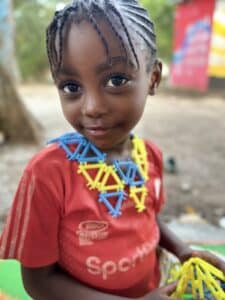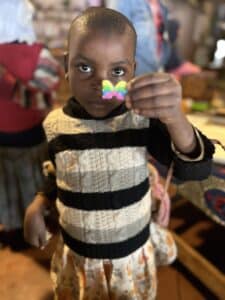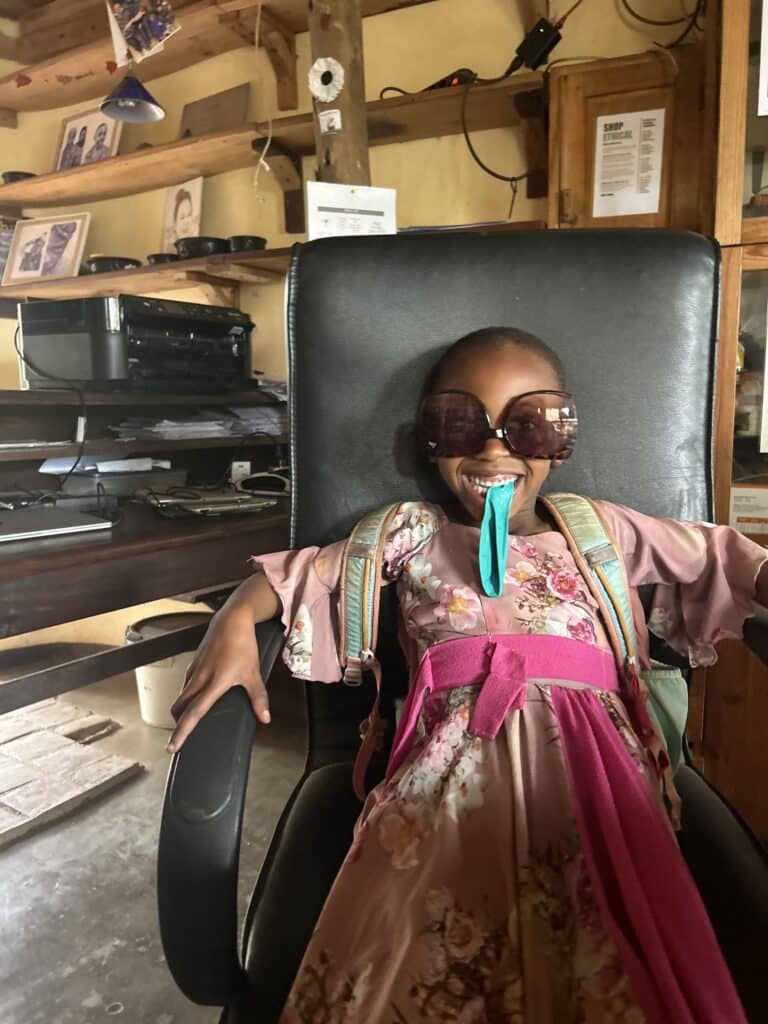You spot a barefoot child, reach into your bag, and offer a doll or a chocolate bar. The child smiles. You feel good. But that warm feeling often masks a far more complex, and frankly troubling, reality.
At Uvi Foundation, we’ve seen firsthand how these acts, however well-intentioned, often do more harm than good.
They don’t help a child’s future, they don’t strengthen communities, and they don’t contribute to development. In fact, they often cause conflict, reinforce toxic stereotypes, and highlight a deeper truth: most of the time, the gesture is not about the child—it’s about the tourist’s conscience.
Many visitors distribute items not to create long-term impact, but to ease their own white guilt—to feel less overwhelmed by inequality, less uncomfortable with their material wealth, and less complicit in global imbalances. The act becomes symbolic, more about self-redemption than meaningful support. The child receives something temporary—a broken toy, a piece of candy—and the giver walks away feeling “kind.”
A teddy bear’s faith in Africa
-
But what really happens after that doll or teddy bear changes hands? You imagine the smiling child treasuring it, sleeping beside it every night. But the reality is far different. That teddy bear will immediately become the source of a fight—among five, ten, or twenty children. They all want it. And the child who ends up with it is rarely the quiet, sweet little girl or boy you imagined. It’s the strongest child, often the oldest or most aggressive, who claims it as theirs.
Within hours, that once-cute toy is dragged through the dirt. It gets torn. It gets used, shared, or stolen. It won’t be washed—there likely isn’t access to a washing machine, or even regular clean water. Over time, it becomes a dirty, bacteria-ridden object. And sadly, it doesn’t end there. That same toy might end up in the bassinet of a newborn sibling, covered in filth, feces, or worse. Was that your intention? Is that help?
Hurtful double standards
And then there’s the question of dignity. Would you give your child a half-used pencil, chewed on, sharpened down to the nub? Yet that’s exactly what some visitors donate. At Uvi Foundation, we’ve received boxes of nearly useless items—from a Belgian group that brought two cartons of non-functional pens branded with a European doctor’s name, to piles of stubs of pencils too short for even a child’s fingers—deemed “perfect” for donation, simply because they were being thrown out at home. These are not gifts. They are garbage—rebranded as generosity simply because the recipient is African.
There’s also the deep hypocrisy. In Western countries, walking up to a child you don’t know and handing them something—especially without a parent’s permission—would be considered highly inappropriate, if not criminal. You might be suspected of grooming, child endangerment, or worse. Yet when in Africa, many visitors suddenly believe these basic boundaries and protections no longer apply. It’s a dangerous double standard, rooted in racism and leftover colonial mindsets—the idea that “all African children are ours.” But who gave you the right?
These are not helpless, voiceless beings. African children have families, identities, and rights. They deserve the same protection, privacy, and respect as children anywhere in the world.
Support entrepreneurship NOT dependence
And let’s not even talk about the wasted resources. Shipping used toys or clothes halfway across the world costs more in postage than the items are worth—and does nothing for local economies. Instead, bring money. Buy from local shops. Support Tanzanian businesses. Empower parents to provide for their own children. That is dignity. That is impact.
In conclusion: giving out candy, toys, or random items on the streets of Africa isn’t generous—it’s shortsighted, self-serving, and disrespectful. If you truly care, listen to the people on the ground. Partner with trusted organizations. Give in ways that honor children, not humiliate them. Real help starts with humility, not a suitcase full of broken toys.
If you want to support Tanzania’s development in an ethical and durable way




